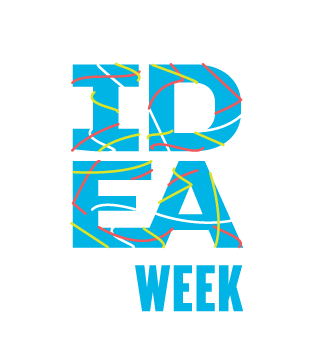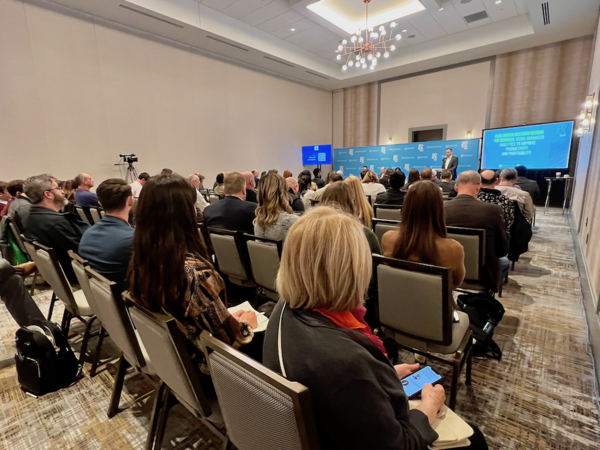
During his IDEA Week discussion, Matt Harrison described how data is driving transformation at CHaSE Manufacturing in Northern Indiana, where he serves as Director of Design & Business Intelligence.
“The only data we had were sales orders and invoices,” Harrison said, describing the situation at the outset of his journey six years ago. “There was literally no data available.”
That meant that CHaSE, a firm making cabinets and related wood-based products, was limited in how it could grow its business and communicate its capabilities to customers in actionable ways.
Harrison’s company, as with most manufacturing firms working with Notre Dame’s iNDustry Labs, wanted to apply the power of data innovation but needed to find right-sized solutions for a business with 160 employees. Leveraging that power has enhanced CHaSE’s operations, while supporting a company culture that once relied on gut decisions and anecdotal detail.
Regional Business and iNDustry Labs
Harrison joined Executive Engineer-in-Residence John DeSalle of iNDustry Labs and a host of top-tier speakers during three IDEA Week panel discussions focused on the digital transformation of the South Bend-Elkhart region’s industry sectors. Panelists and moderators from industry and academia discussed current challenges, and aimed to share opportunities available to companies seeking to take advantage of emerging tech and business practices, as well as the resources available to support them via Notre Dame’s iNDustry Labs and the region’s broader LIFT Network. An industry innovation expo was held concurrently, demonstrating products and services designed to support the region’s businesses.
It’s a critical mission in Northern Indiana, where manufacturing accounts for about $US12 billion in gross domestic product (GDP) and some 40% of the regional economy. The business, data science, and academic and education leaders brought their expertise on topics like assuring data quality, engaging University facilities and talent, and workforce development.
“INDustry labs acts as a front door to the University [of Notre Dame],” explained DeSalle during a panel on unlocking opportunities via University-industry collaboration. “The goal is to make these interactions easier between the university, the LIFT Network, and industry.”
DeSalle illustrated the principle by sharing a story from his days at the helm of Hoosier Racing Tire, a race car firm competing in the global space. They had lots of engineers but their labs, even as sophisticated as they were, didn’t have all the equipment they needed. The business shipped off samples for analysis because although they had people who could interpret nuclear magnetic resonance data, they didn’t have the machine.
“We didn't know there are several of these machines on campus,” DeSalle said. “And it's a two-way street. There are researchers on campus who need access to industry, too.”
Workforce of the Future
Speakers including Vice President Sue Smith of Ivy Tech Community College, representing its School of Advanced Manufacturing, Engineering, and Applied Science (AMEAS), focused on the importance of preparing a skilled workforce that’s ready to take advantage of those opportunities. Often, that means additional certification for existing employees as well as education and training for new ones.
“It’s one process at a time, one line at a time, with automation and robotics,” said Smith, who works closely with small and medium-sized businesses. “And then they’re ready to tackle another [challenge].”
Employers like panelist Tim Widner, director of glass manufacturing and technical services at Lippert in Elkhart County, want to ensure they have the digital-age workers they need while providing well-paid positions in new manufacturing careers.
It’s a challenge, given a chronic labor shortage, the digital training deficits, and the barriers that perceptions about “old school” manufacturing present when seeking to attract and retain workers.
Ann-Marie Conrado, Cregg Family Director of the Program in Collaborative Innovation and associate professor of industrial design at Notre Dame, said that “iNDustry Labs is trying to making connections with companies,” in order to support change and address challenges.
Real World Experience for Students
The emphasis on training and preparation is no less important for students within the Notre Dame community, who experience hands-on learning through iNDustry Labs and other Notre Dame initiatives while developing “real world” solutions for community business partners.
That’s the case for Matthew Dotson (BS Mechanical Engineering ’22), who had the chance to work directly with Lippert and other regional businesses. Dotson said these opportunities added relevance to his studies and professionalism to his work because they were done for real clients.
That’s an intentional goal of education, says David Go, the Viola D. Hank Professor and Chair of Aerospace and Mechanical Engineering at Notre Dame. But for corporate partners, the value of Notre Dame student partnerships manifests itself in different ways.
“National and global companies that have gigantic workforces, they are using this for talent identification,” said Go. “A smaller company that perhaps does not have an engineering workforce at all, they actually need to solve a problem but they don't have the internal resources. And that's a different scope and scale.”
